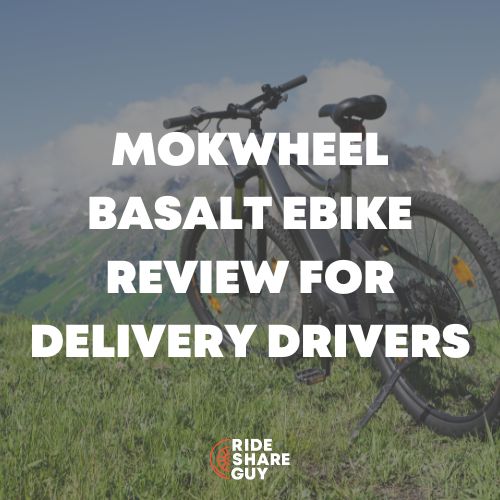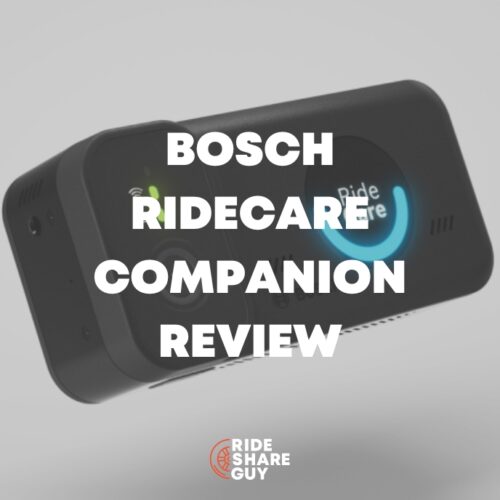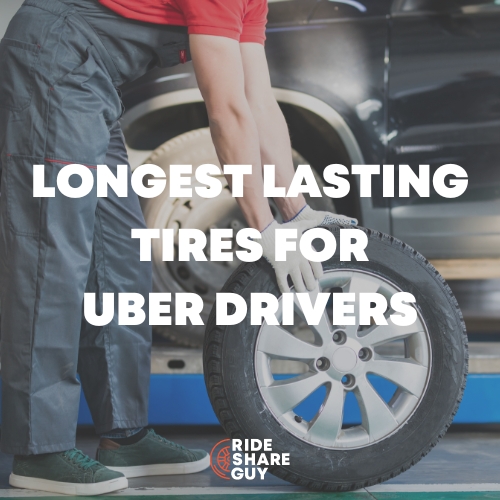Drivers in California began to receive alarming messages around Thanksgiving: potentially, they need to pay back hundreds if not thousands of dollars in unemployment. Senior RSG contributor Paula Gibbins breaks down what’s happening with California unemployment and what drivers are receiving in the mail below.
California gig workers recently started receiving notifications from the Employment Development Department (EDD) about possible decreases in weekly Pandemic Unemployment Assistance (PUA) benefits.
The gist of the notifications for drivers and other gig workers is: If the documentation provided to EDD from the gig worker shows they should have a decrease in their PUA weekly benefits, the worker will be made to repay the difference.
How did this happen? What can drivers do?
Editor’s note: This is a developing story, and we will update as we learn more.
Quick summary:
- Some drivers in California are being contacted to repay unemployment benefits
- Issue was based on how they filled out income: net vs. gross
- Drivers legitimately have a lot of deductions – net isn’t a good representation of income
- Because the state rushed to get out unemployment benefits, some drivers now may have to pay back thousands of dollars
What’s Going On Right Now
Drivers who applied for Pandemic Unemployment Assistance as independent contractors are now receiving messages from the California Employment Development Department (EDD) that they may owe money because they received more benefits than they were entitled to receive.
Drivers are now being contacted by EDD for submitting the incorrect information.
Here is an example of one message a driver received:
You have 21 days to provide 2019 income documents for your Pandemic Unemployment Assistance (PUA) claim. You must prove your 2019 income to avoid a decrease in your weekly benefit amount. If you were paid benefits, you may have to repay what you were not entitled to receive.
Log in to your UI Online account and go to the Upload Income Document PUA section on the homepage to provide the required documents.
If you are unable log into your UI Online account or prefer to mail your documents through the USPS, visit Income Documentation for instructions.
Thank you,
Employment Development Department
State of California
Many gig workers, and drivers in particular, applied for PUA through California’s EDD. When drivers filled out the PUA form, they were asked about their income. Gig workers were supposed to be net income but some filled out their gross income, and that’s where it has become an issue.
As one driver said in response to this communication:
“In short, benefits for contractors will now be based on net earnings, not gross as is the
case with regular employees. This is a huge difference and will be disastrous for gig workers
who received benefits based on their 1099s.
EDD says they will require us to repay the money. Personally, I didn’t expect any benefit.
As a result, I tried to use the money to boost the economy, support local business and restaurants,
I won’t be able to pay it back.”
Net vs. Gross Income: EDD Confusion
We all know that drivers have many expenses when it comes to rideshare and delivery. Drivers legitimately have a lot of deductions, so net income isn’t a good representation of their income.
Additionally, the messaging around PUA in California was confusing: some drivers didn’t understand they needed to fill out net vs. gross income.
As one driver we spoke to pointed out: “Back in April, EDD allowed drivers to submit 1099 tax forms showing TOTAL INCOME to qualify for assistance – the standard that applies to employees who are out of work.
This was consistent with the well-publicized new state law that specifically identified rideshare drivers as employees. Referencing total income also offset the effect of unreimbursed job expenses that reduce driver net income to minimum-wage levels. If EDD relief were based on net income, a full-time rideshare driver would receive about $150 a week instead of $450.”
As of November 2020, the EDD states: “For self-employment, the documents must show your net income. Tax documents such as the IRS 1040 and an associated Schedule C are preferred.”
But as pointed out in the documents above, Uber and Lyft do not truly provide the net income. So how are drivers supposed to provide this if they are not given it in the first place?
BUT, also on the EDD website, it says: “1099 wages: If you are a self-employed worker, independent contractor, or business owner, report your income in the weeks you actually received payment, no matter when you performed the service. If you performed services, but didn’t receive income that week, then you do not need to report any income for that week.”
1099 wages are gross earnings, not net. So even their own website is contradictory in what they are expecting drivers to submit and what is acceptable.
Drivers are having to verify their income without much information as to how they can do that properly. If the state determines that drivers have been overpaid, those drivers will have to pay the difference. This, in many cases, would be thousands of dollars.
What Can Drivers Do?
If you applied for Pandemic Unemployment Assistance (PUA) through California’s Employment Development Department (EDD), and you filled out gross instead of net earnings, you may receive a message from EDD asking you for more information.
Drivers must submit the documentation required and follow all state requirements. It will be up to the state to determine if the overpayments given to drivers were fraud on the part of the drivers or not.
Here’s how they define fraud and non-fraud instances and how each is handled.
- Fraud: If the EDD finds that you intentionally gave false information or withheld information and, as a result, received benefits that you should not have received, the overpayment is considered fraud. Withholding or giving false information to obtain benefits is a serious offense that can result in penalties and criminal prosecution. With a fraud overpayment, you can receive a penalty equal to 30 percent of the overpayment amount. Additionally, you can be disqualified for 5 to 23 weeks. You must repay fraud overpayments and penalties.
- Non-Fraud: If you received benefits you were not eligible for and the overpayment was not your fault, the overpayment is considered non-fraud. You will receive a notice telling you if the overpayment must be repaid.
Unfortunately, in an article by Kristine Lazar of CBS Los Angeles, right now it looks like EDD knew it may have overpaid some people but is not backing down on collecting alleged overpayment, even during a pandemic:
“In a statement, an EDD spokesperson said that “overpayments are always a part of the Unemployment Insurance program across the country. We do not have any readily available data on total formal overpayments and do not track the circumstances of how the claim reached that status.”
Anyone who received benefits they were not eligible for should receive notice by mail, according to EDD. The notice should explain the reason for the overpayment, the amount and penalties, as well as information about appeal rights.”
Hopefully the state realizes that none of these instances are fraudulent. It was not the intention of these drivers to receive more income than they were eligible for. If anything, it seems more of an error on the state’s side.
Additionally, the EDD states:
“If you do not repay your overpayment quickly, the EDD can deduct the money from your future UI or State Disability Insurance benefits. The EDD can also:
- Reduce or withhold your federal and state income tax refunds.
- Reduce or withhold your state lottery winnings.
- Reduce or withhold other money the State owes you.
- File a claim against you in court.
- Charge you court costs and interest.
- Record a lien on your property.”
It’s not clear what they mean when they say “quickly” for repayment. You’d think they would be understanding of the current economic climate and people’s situations. The money was not frivolously spent on wants, but instead used for basic needs. I would hope the state would not expect drivers to pay back $10,000 overnight.
This story is not over – it’s hard to see how making thousands of drivers potentially pay back money to the state during a pandemic isn’t going to be a huge deal. If you’re a California driver who has received this message from EDD, let us know what you’re doing and what you’ve been told during this process.
-Paula @ RSG




